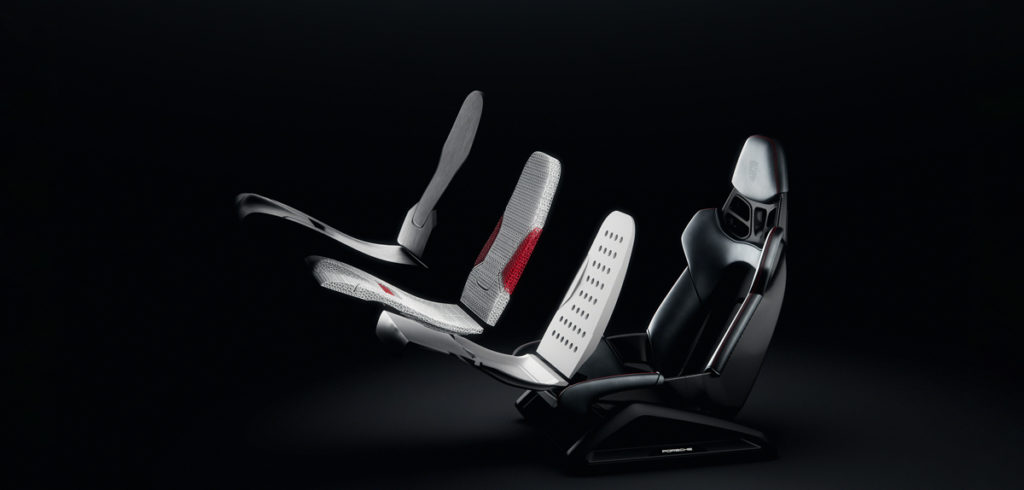Porsche has presented an alternative to conventional bucket seat upholstery with a 3D-printed bodyform concept study.
The central section of the seat is partly produced by a 3D printer, with customers able to choose the firmness for comfort layers in the future.
The new technology underlines Porsche’s motorsport ties as personalized sports seats follow the principle of customized seats for racing drivers.
Michael Steiner, member of the executive board for research and development at Porsche, said, “The seat is the interface between the human and the vehicle, and is thus important for precise, sporty handling. That’s why personalized seat shells customized for the driver have been standard in race cars for a long time now.”
He added, “With the ‘3D-printed bodyform full-bucket seat’, we’re once again giving series-production customers the opportunity to experience technology carried over from motorsports.”
Porsche says that the seats weigh less, while offering improved comfort and passive climate control.
The 3D printed bodyform full-bucket seat is based on Porsche’s lightweight full-bucket seat and features a sandwich construction.
A base made from expanded polypropylene is bonded to a breathable comfort layer consisting of a mixture of polyurethane-based materials made using additive manufacturing.
The outer skin is made from Racetex and features a specific perforation pattern for climate control.
Window panels provide a view of exposed colored components in the 3D-printed lattice structure.
The 3D-printed seats will be available from Porsche Tequipment for the 911 and 718 ranges from May 2020.
Initially limited to 40 seat prototypes for use on European racetracks with a six-point seatbelt, a street legal version will be available from mid-2021.



